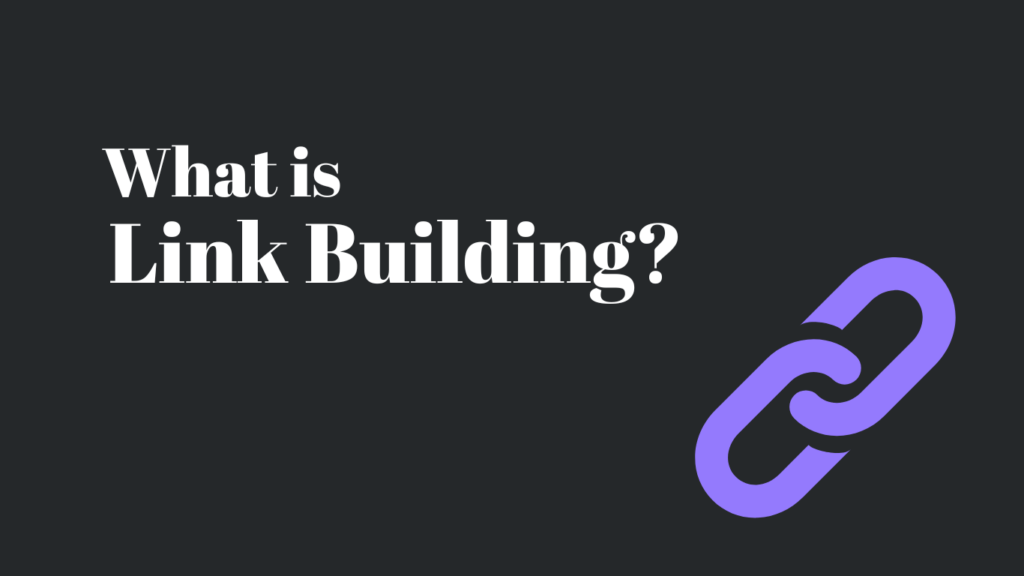
Link Building
Link building is the process of gathering hyperlinks from other websites back to your own. Simply a link, a hyperlink allows users to go between several pages on the internet. Search engines explore the web using these links; a page’s ranking usually increases with increasing quality links it contains.
Various kinds of Links Building:
Internal links:
Internal links are links running from one page on a domain to another on the same domain. They enable users of your site to navigate it and also distribute link equity—ranking power—around websites.
External links:
Links from your page to another website are external links. These can signal to search engines your material is reliable and offer readers further tools.
Backlinks:
For SEO, backlinks are the most worth-while links. Backlinks are outside links pointing to your site from other domains, therefore enhancing the authority and ranking of your site.
Important Link Building for SEO
Effect on Search Engine Results:
Backlinks are a symbol of authority and trust used by search engines like Google. Search engine results page (SERRs) show websites with more premium backlinks greater ranking. Backlinks serve essentially as votes of trust from other websites.
Variability in Website Authority:
Backlinks contribute to develop the authority of a website in its niche. Search engines will view your website as an authority more likely the more authoritative and relevant links you have, thereby enhancing your rating
Types of Link Building Strategies
White Hat:
White Hat link building calls for moral tactics include guest blogging, producing excellent work, and developing relationships.
Black Hat:
Black Hat Link Building involves unethical methods such link farms, purchase of links, and linking spamming of comment sections
Common Link Building Techniques:
These techniques centre on giving consumers value and establishing legal relationships with other websites.
Key Components of a Successful Link Building Strategy
Quality Over Quantity:
Regarding connection development, quality always comes first than quantity. One link from a highly reputable website can be more valuable than dozens of links from poor-quality websites.
Relevance and Contextual Links::
Naturally occurring contextual links—those that fit the text—are more beneficial since they offer background and further information.
Natural Link Building:
Natural link building occurs when other websites link to your content without you having to ask. This often happens when you create valuable, shareable content that others find useful.
Best Strategies for Link Building
Emphasize high-quality material:
Any effective link-building plan starts with producing excellent value-adding material. Links are more likely to be drawn to material that answers issues, educates, or entertains.
Guest Blogging and Marketing Outreach:
Guest blogging lets you swap a hyperlink for material you offer to other websites. Outreach consists in contacting other websites and influencers to advertise your material and get links.
Developing relationships with influencers:
In your niche, influencers can aid to magnify your efforts at link-building and content amplification. Developing rapport with these people could result in worthwhile backlinks and more exposure.
The Role of Content in Link Building
Developing Link-Worthy Material:
Links are more likely to be drawn to original, interesting, and instructive material. Consider what your readers wish to share and read, then provide material fit for those demands.
The Influence of Visual Content:
Powerful resources for link development include visual materials including photos, infographics, and videos. They can draw links from many kinds of websites and are readily shared.
Link building using infographics:
Because they clearly and aesthetically appeal and simplify material, infographics are especially successful. Often as a source of their own material, websites link to infographics.
Common Link Building Mistakes to Avoid
Buying Links:
Buying links could appear like a fast approach to improve your results, but it’s a black mark strategy that might result in search engine penalties.
Over-optizing Anchor Text:
Anchor text in a hyperlink is the clickable text. Over optimising this language with keywords could seem deceptive and lead to fines. Anchor text should remain naturally occurring and diversified.
Ignoring No follow Links
Although nofollow links do not convey link equity, they nonetheless generate traffic and raise the awareness of your brand. One loses an opportunity by totally ignoring them.
Conclusion
In essence, link building is still a key element of SEO since it affects website authority as well as search engine results. Following best standards and concentrating on top-notch, pertinent links can help to improve the reputation and exposure of your website. Maintaining success as SEO changes will depend on your ability to keep updated and modify your plans.

